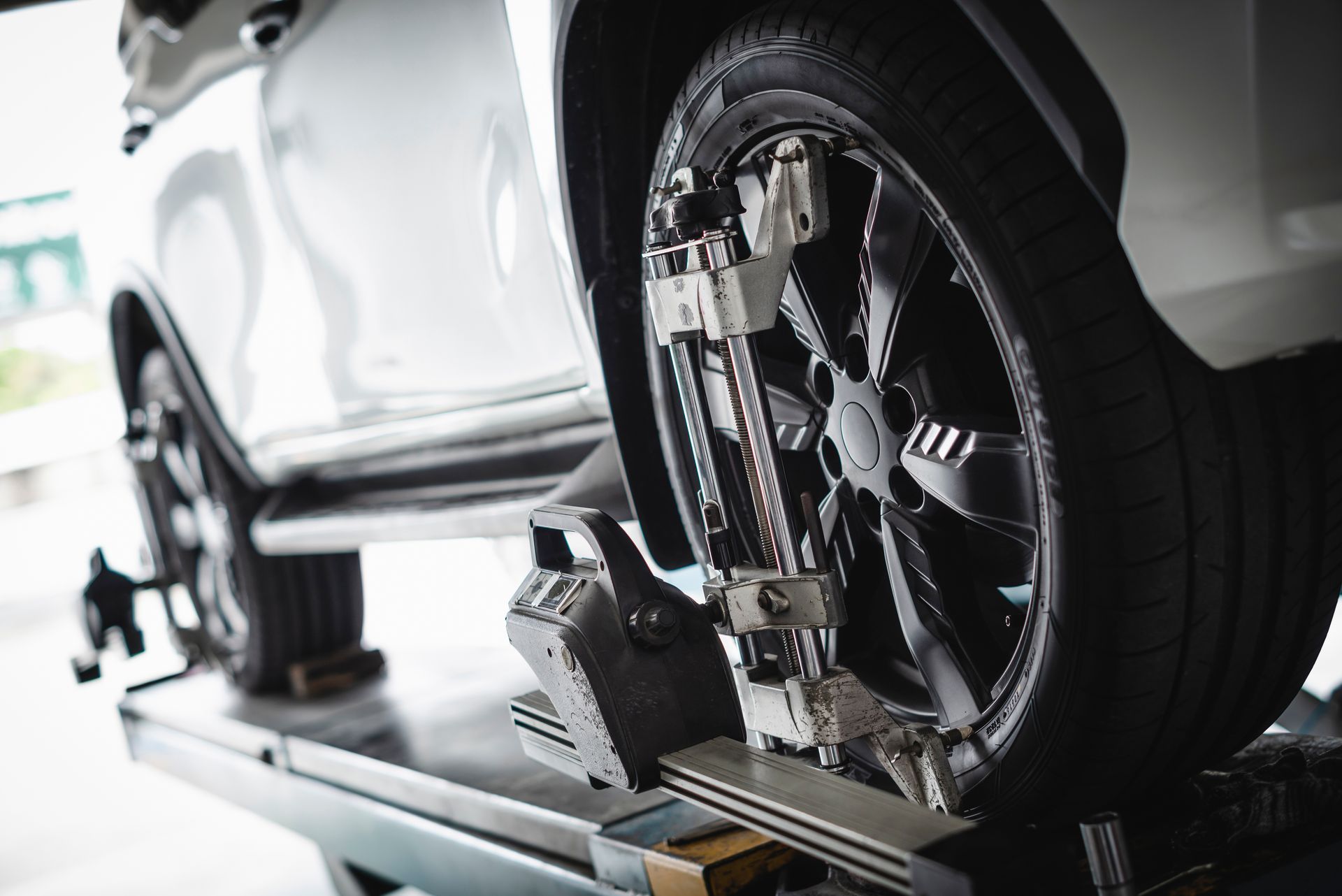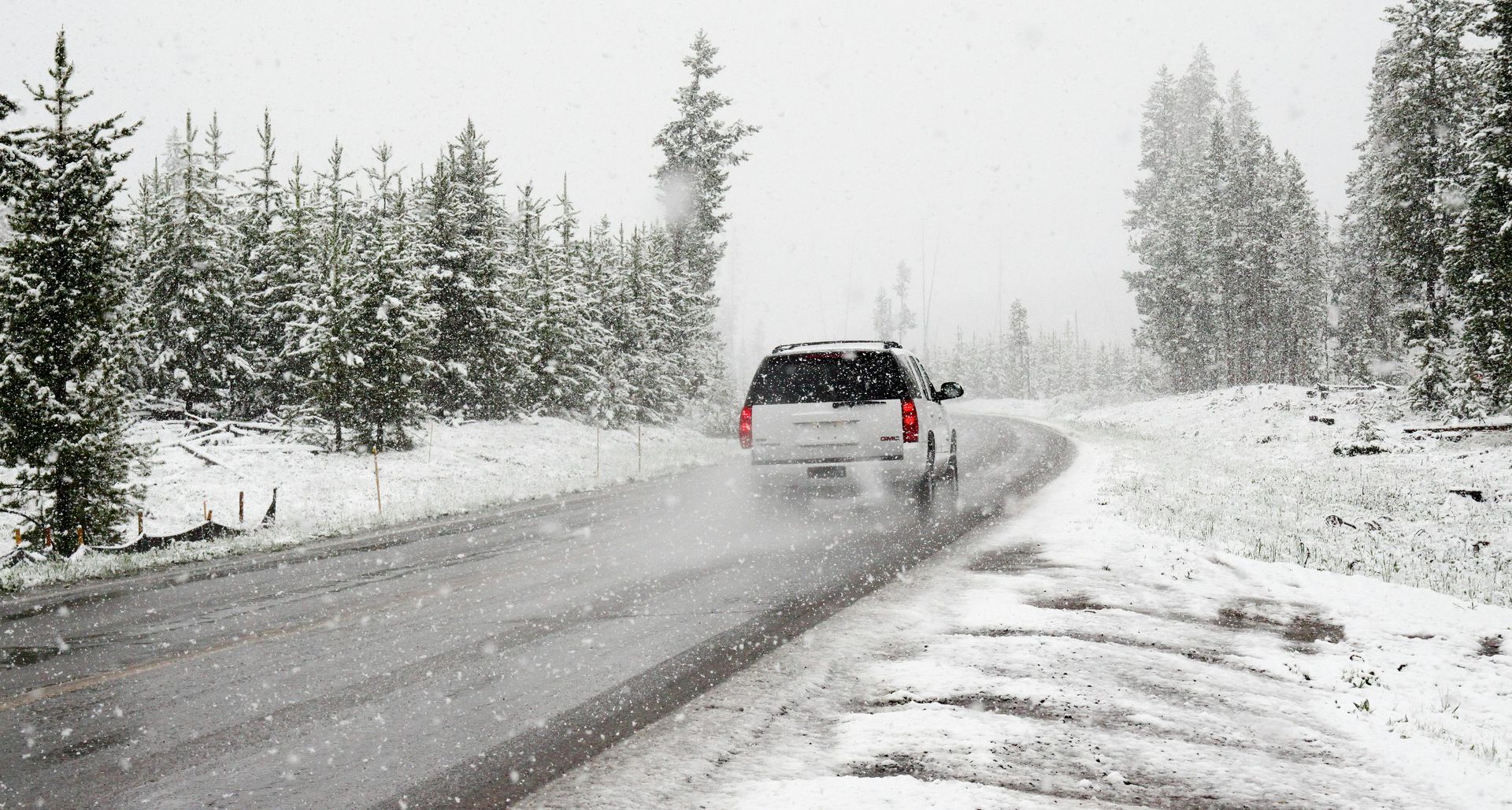Stay Powered Up: Essential Battery Testing to Prevent Fall Breakdowns in Colorado
Fall mornings in Fort Collins can be deceiving. You might wake up to a beautiful 70-degree afternoon forecast, but that same morning started at 35 degrees with frost on your windshield. These dramatic temperature swings are exactly what kills car batteries, leaving countless Colorado drivers stranded in parking lots, driveways, and remote mountain locations just when they need their vehicles most.
Your car battery has already survived a brutal summer of heat that weakened its internal components. Now, fall's temperature extremes are ready to deliver the final blow. The good news? A few simple checks now can prevent you from becoming another roadside assistance statistic this fall.
Why Fall is Battery Killer Season in Colorado
Car batteries hate temperature extremes, and Fort Collins delivers both ends of the spectrum within a 12-hour period during fall months. Summer heat damaged your battery's internal plates and evaporated electrolyte fluid. Now, cold temperatures reduce your battery's power output by up to 50% while your engine demands more power to start.
Here's the deadly combination Colorado batteries face:
- Summer heat weakened internal components
- Cold reduces available cranking power
- Engines need more power to start in cold weather
- Temperature swings stress battery cases and connections
A battery that cranked your engine reliably in August might struggle to turn it over on a 30-degree October morning. This problem becomes even worse if you're camping at higher elevations where temperatures drop faster and get colder than in town.
Recognize the Early Warning Signs
Smart Fort Collins drivers learn to spot battery problems before they leave you stranded. Many warning signs appear weeks before complete battery failure, giving you time to address the problem on your schedule rather than during an emergency.
Watch for these telltale signs:
- Engine cranks slowly, especially on cool mornings
- Dashboard lights dim when you turn the key
- Headlights seem dimmer than usual
- Radio loses preset stations more frequently
- Interior lights appear dim or yellowish
These symptoms often appear gradually, making them easy to ignore. That slightly slower engine crank might not seem important on a warm afternoon, but it's your battery warning you that it won't survive the next cold snap.
Visual Inspection Tells the Story
Your battery case provides valuable clues about its internal condition. Summer heat and age create visible damage that predicts fall failures. A quick visual inspection can reveal problems before they strand you.
Look for these warning signs:
- Swollen or bulging battery case (heat damage)
- Cracks in the plastic case
- Corrosion around battery terminals (white, green, or blue buildup)
- Loose or damaged battery cables
- Fluid leaks around the battery base
Corrosion deserves special attention. Those white, crusty deposits around your battery terminals aren't just ugly—they interfere with electrical connections and can prevent your battery from delivering full power when you need it most.
Test Your Battery's True Condition
Visual inspections and performance symptoms provide clues, but only proper testing reveals your battery's true condition. Many Fort Collins auto parts stores offer free battery testing, but the results aren't always reliable due to equipment variations and testing conditions.
Professional battery testing includes:
- Load testing under simulated starting conditions
- Checking specific gravity of battery fluid
- Testing the charging system's performance
- Inspecting connections and cables
- Measuring actual cranking amps vs. rated capacity
A battery might test "good" on a warm afternoon but fail completely when temperatures drop overnight. Professional testing simulates cold-weather conditions to predict real-world performance.
Age Matters More in Colorado
Most car batteries last 3-5 years under normal conditions, but Colorado's extreme temperature swings reduce that lifespan significantly. A battery that would last five years in milder climates might fail after three years in Northern Colorado.
Check your battery's age:
- Look for a date code stamped on the battery case
- Most codes show month and year of manufacture
- Replace batteries over 3 years old before fall arrives
- Consider proactive replacement for batteries approaching 4 years
Don't gamble with an aging battery when fall weather becomes unpredictable. The cost of a new battery is minimal compared to the inconvenience and potential danger of being stranded during Colorado's volatile fall weather.
Cold Cranking Amps: Your Fall Safety Net
Cold Cranking Amps (CCA) measure your battery's ability to start your engine in cold weather. This rating becomes critical when Fort Collins temperatures drop below freezing. Many drivers don't realize their battery's CCA rating or whether it's adequate for Colorado conditions.
CCA considerations for Colorado drivers:
- Higher CCA ratings provide better cold-weather performance
- Older batteries lose CCA capacity over time
- Diesel engines and larger vehicles need higher CCA ratings
- Mountain driving and remote locations require reliable starting power
If you frequently drive to mountain destinations like Rocky Mountain National Park or camp at higher elevations, consider a battery with higher CCA ratings than your vehicle manufacturer recommends.
Connection Quality Affects Performance
Even a good battery can fail if connections are poor. Corrosion, loose cables, and damaged terminals prevent your battery from delivering full power to your starter motor. Fall's temperature changes can make connection problems worse as metals expand and contract.
Clean and secure all connections:
- Remove corrosion with baking soda and water
- Tighten cable clamps until snug (don't over-tighten)
- Apply terminal protectant spray to prevent future corrosion
- Check that cables aren't cracked or frayed
Poor connections cause voltage drops that make your battery work harder and fail sooner. Clean, tight connections extend battery life and improve cold-weather starting reliability.
Your Charging System Affects Battery Life
A failing alternator or voltage regulator can kill even a new battery quickly. If your charging system isn't maintaining proper voltage, your battery works harder and fails sooner. This becomes especially important during fall when your battery faces its greatest challenges.
Signs of charging system problems:
- Battery keeps dying despite recent replacement
- Dashboard battery warning light illuminates
- Headlights dim when engine idles
- Electrical accessories work poorly
- Battery terminals show excessive corrosion
Have your charging system tested along with your battery. A weak alternator can't keep your battery properly charged, leading to premature failure just when you need reliable starting power most.
Extreme Weather Preparation
Fall in Colorado often brings surprise weather events that test your battery's limits. Early snowstorms, temperature swings of 40 degrees in a single day, and cold mountain mornings all stress your battery beyond normal operating conditions.
Prepare for temperature extremes:
- Park in heated garages when possible
- Use battery warmers for extreme cold exposure
- Avoid leaving electrical accessories on when parked
- Keep jumper cables or a portable jump starter handy
- Consider a battery tender for vehicles stored outside
If you frequently camp or recreate in remote mountain areas around Fort Collins, a portable jump starter provides peace of mind when help isn't readily available.
Timing Your Battery Replacement
Don't wait for battery failure to replace an aging or weak battery. Fall offers the ideal window for battery replacement—before cold weather arrives but while service centers have good availability and comfortable working conditions.
Ideal replacement timing:
- Replace batteries over 3 years old before October
- Address weak batteries identified during testing
- Don't gamble with batteries showing warning signs
- Consider group purchases for multiple family vehicles
Proactive battery replacement costs the same as emergency replacement but happens on your schedule rather than during a crisis.
Professional vs. DIY Battery Service
While battery replacement seems straightforward, modern vehicles often require specific procedures to avoid electrical system damage. Some vehicles need computer memory preservation during battery replacement, and others require relearning procedures after installation.
Professional service advantages:
- Proper disposal of old batteries
- Memory preservation for vehicle computers
- Correct installation and connection procedures
- Charging system testing and diagnosis
- Warranty protection on parts and labor
Don't Let Your Battery Leave You Out in the Cold
When Colorado's fall weather turns unpredictable, your battery becomes your lifeline. Don't trust your safety and convenience to a battery that's already been weakened by summer heat and is facing fall's temperature challenges.
At Total Automotive in Fort Collins, we've been helping Colorado drivers avoid battery-related breakdowns since 1985. Our ASE-certified technicians know how Northern Colorado's extreme temperature swings affect battery performance, and we can test your battery under conditions that simulate real-world fall driving.
Located at 6024 South College Avenue, our 12-bay facility is equipped with professional battery testing equipment that provides accurate assessments of your battery's condition and remaining life. We stock quality batteries designed to handle Colorado's demanding conditions, and we properly dispose of your old battery in an environmentally responsible manner.
Don't wait for the first cold snap to discover your battery can't handle fall weather. Call (970) 900-6735 or schedule your battery test online today. A few minutes of testing now can save you hours of frustration later—and ensure you're never stranded when Colorado weather turns challenging.












